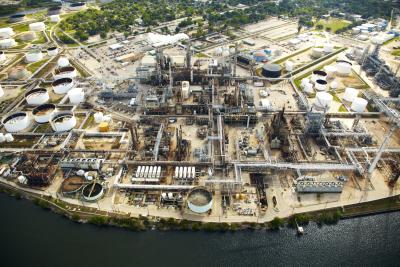
Global commercial energy sources are valuable for their abilities to generate electricity, heating and other necessities of modern industrial life. Fossil fuels are the main major sources of global commercial energy for their relative cheapness and efficiency, but environmental concerns over these sources have many countries looking to other sources such as renewable energy and nuclear energy as fuel.
Fossil fuels are the most common major source of global commercial energy. However, fossil fuels are nonrenewable sources of energy that are used up faster than they can be replaced. These sources include coal, oil and natural gas, and they are used worldwide to generate electricity, heat homes and fuel most modes of transportation. Fossil fuels are generally the cheapest sources of energy and are relatively abundant in deposits around the world. However, human lifestyles and modern technologies consume fossil fuels at rapid rates, which have many governments looking to reduce energy dependence on fossil fuels.
Renewable energy sources are sources of energy continuously found in the environment. Unlike fossil fuels, which are limited in supply and cannot be quickly regenerated, renewable energy sources such as wind, water and the sun are constantly present and environmentally friendly. Renewable energy sources are used to generate electricity in some homes and businesses, but concerns remain about the high cost and poor aesthetics of using renewable energy sources. Solar power, wind power and hydroelectric power also depend heavily on whether these environmental sources are available at a usable rate. For example, cities that experience constant cloud cover could not effectively use solar power as an energy source.
Nuclear energy is an economically cheap source commonly generated at power plants where nuclear reactions are manmade, as opposed to natural nuclear reactions such as those observed in the sun and other stars. Nuclear power plants generate large amounts of electricity and also require less fuel than other plants that use fossil fuels. Nuclear energy is also environmentally clean when properly generated. However, nuclear energy produces high amounts of radiation and waste, which can cause many health and environmental problems for countries.
Biofuels are alternative sources of energy made from food products, living organisms and other types of biomass. They are environmentally friendly, renewable sources of energy. The most common biofuel is ethanol, which is made from corn crops and burns more cleanly than oil. Other developing biotechnologies include the use of other grains as well as algae to generate energy. Opponents of biofuel use argue that biofuels are too expensive and cause even more rapid deforestation and crop consumption. Much of the crops used to create biofuels could be used instead to feed impoverished populations.